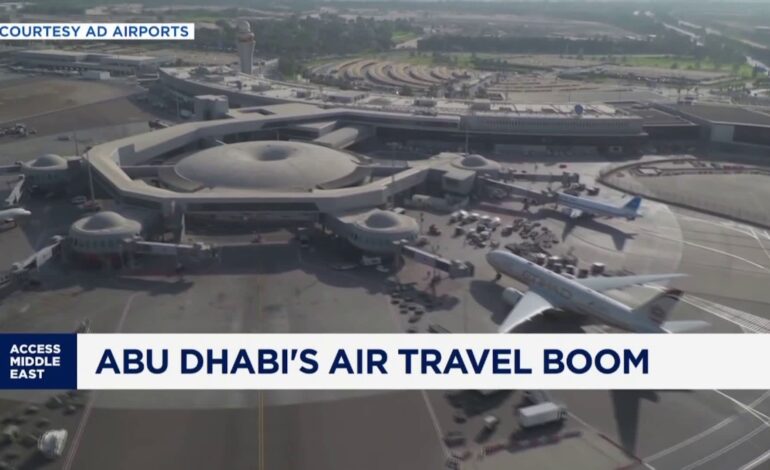Abu Dhabi’s Aviation Growth Surges, Yet Trails Behind Dubai

Abu Dhabi’s aviation and hospitality sectors have experienced significant growth in recent months, although they still lag behind Dubai’s impressive performance. According to the International Air Transport Association (IATA), passenger traffic in Abu Dhabi has surged by 43% in 2023 compared to the previous year, showcasing a robust recovery post-pandemic. This growth reflects the city’s efforts to enhance its tourism appeal and strengthen its position as a key player in the aviation industry.
Comparative Growth: Abu Dhabi vs. Dubai
Despite this promising growth, industry experts indicate that Abu Dhabi remains a considerable distance from matching Dubai’s aviation and hospitality achievements. In 2022, Dubai’s airport reported over 66 million international passengers, significantly outpacing Abu Dhabi’s figures. The emirate of Dubai continues to dominate the market, driven by its extensive range of international flights and world-class hospitality services.
Abu Dhabi’s strategy to bolster its aviation sector has included investments in new routes, partnerships with international airlines, and the development of state-of-the-art airport facilities. The city is striving to attract a broader range of tourists while enhancing the experience for visitors already drawn to the region.
Investment in Infrastructure and Services
Key to Abu Dhabi’s growth is the ongoing investment in infrastructure. The city is expanding its airport capacity and upgrading existing facilities to accommodate increasing passenger numbers. Furthermore, hospitality ventures are also on the rise, with new hotels and attractions being developed to cater to the growing demand.
In addition to physical infrastructure, Abu Dhabi is focusing on diversifying its tourism offerings. The emirate has launched various cultural and entertainment events, aiming to provide visitors with unique experiences that extend beyond traditional attractions. Such initiatives are expected to enhance Abu Dhabi’s appeal as a travel destination.
Industry leaders emphasize the importance of collaboration between governmental bodies, airlines, and hospitality providers to ensure sustainable growth. The Abu Dhabi Department of Culture and Tourism has been actively involved in promoting the region’s cultural heritage and natural landscape, which are key attractions for international visitors.
While Abu Dhabi’s growth trajectory is encouraging, stakeholders agree that a concerted effort is necessary to bridge the gap with Dubai. Achieving this goal will require ongoing investment, innovation, and a commitment to enhancing the visitor experience.
Overall, the developments in Abu Dhabi’s aviation and hospitality sectors reflect a dynamic response to the changing landscape of global travel. With strategic planning and a focus on quality service, the emirate aims to position itself as a leading destination in the Middle East.






